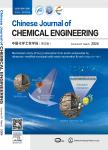Solving chemical dynamic optimization problems with ranking-based differential evolution algorithms
Solving chemical dynamic optimization problems with ranking-based differential evolution algorithms作者机构:Key Laboratory of Advanced Control and Optimization for Chemical Processes Ministry of Education East China University of Science and Technology Shanghai 200237 China School of Electrical and Information Engineering Jiangsu University Zhenjiang 212013 China
出 版 物:《Chinese Journal of Chemical Engineering》 (中国化学工程学报(英文版))
年 卷 期:2016年第24卷第11期
页 面:1600-1608页
核心收录:
学科分类:12[管理学] 1201[管理学-管理科学与工程(可授管理学、工学学位)] 081704[工学-应用化学] 07[理学] 070304[理学-物理化学(含∶化学物理)] 081104[工学-模式识别与智能系统] 08[工学] 0817[工学-化学工程与技术] 0835[工学-软件工程] 0703[理学-化学] 0811[工学-控制科学与工程] 0812[工学-计算机科学与技术(可授工学、理学学位)]
基 金:Supported by the National Natural Science Foundation of China(61333010,61134007and 21276078) “Shu Guang”project of Shanghai Municipal Education Commission,the Research Talents Startup Foundation of Jiangsu University(15JDG139) China Postdoctoral Science Foundation(2016M591783)
主 题:Dynamic optimization Differential evolution Ranking based mutation operator Control vector parameterization
摘 要:Dynamic optimization problems(DOPs) described by differential equations are often encountered in chemical engineering. Deterministic techniques based on mathematic programming become invalid when the models are non-differentiable or explicit mathematical descriptions do not exist. Recently, evolutionary algorithms are gaining popularity for DOPs as they can be used as robust alternatives when the deterministic techniques are invalid. In this article, a technology named ranking-based mutation operator(RMO) is presented to enhance the previous differential evolution(DE) algorithms to solve DOPs using control vector parameterization. In the RMO, better individuals have higher probabilities to produce offspring, which is helpful for the performance enhancement of DE algorithms. Three DE-RMO algorithms are designed by incorporating the RMO. The three DE-RMO algorithms and their three original DE algorithms are applied to solve four constrained DOPs from the literature. Our simulation results indicate that DE-RMO algorithms exhibit better performance than previous non-ranking DE algorithms and other four evolutionary algorithms.



